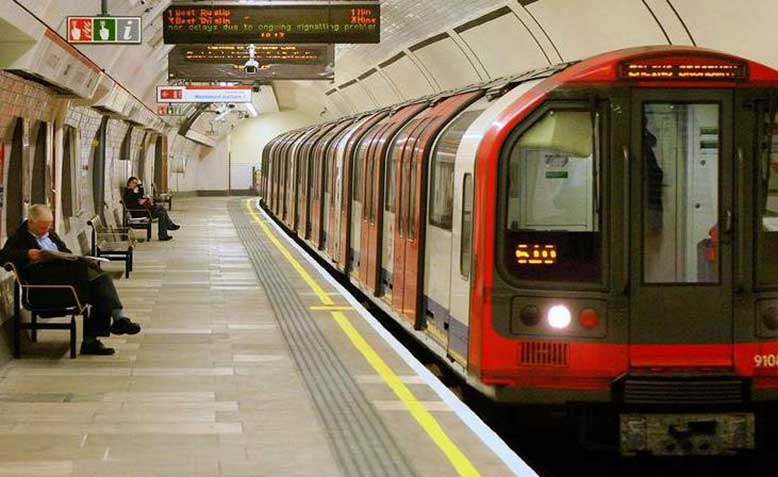 Tube arriving at Lancaster Gate station. Source: Wikipedia
Tube arriving at Lancaster Gate station. Source: Wikipedia
Tube driver and ASLEF branch chair Unjum Mirza describes the growing conflicts over worker and passenger safety on London Underground
In his classic account of the great Haitian slave revolt, The Black Jacobins, CLR James explains ‘phases of a revolution are not decided in parliaments, they are only registered there’.
The date of 1 June 2020 is shaping up as the critical moment in this first phase of the class struggle amid the coronavirus. How it is registered remains to be seen.
In recent years, teachers have led inspiring strike action across continents in defence of public education and their pupils. From the Americas, North and South; across Africa and Asia and Europe teachers have been demanding more funds, social equality, and an end to privatisation.
Now they are mounting resistance against a premature and wider opening of schools in line with their five tests to ensure the safety of staff, pupils, parents, and our communities. We need to throw our weight behind this important campaign: in whatever way and wherever we can.
The teachers aren’t alone. On London Underground (LU), we succeeded in organising a successful blow to management’s attempt to impose an unsafe (COVID-19) timetable and associated rosters on 26 April.
Management returned in early May with the aim to ‘revert to the pre-COVID-19 Timetables and associated rosters’ on Monday this week, 18 May. The government too demanded London Underground ‘restore all services’.
Monday came. Sure, management timetables scheduled the first trains out of stations. But the absence of staff and the union’s support to all members who refuse to work on the grounds of health and safety means they still cannot implement their rosters. Each and every line on LU runs a ‘Special and Restricted Service’.
A volatile truce now holds whereby neither side is able to inflict a decisive blow upon the other to assert control. The conflict will arise again – possibly even on 1 June as management prepare to implement a full train service.
It was the Prime Minister’s confused and ambiguous address on 10 May that encouraged employers to compel workers to return to work – a move to protect their profits while risking our lives.
It caused chaos.
Within days, photographs and videos of our train carriages packed with workers appeared on social media and across the press – poor, black, migrant, construction workers – the very people highest represented among the Covid-19 dead. Meanwhile politicians, employers, and the rich remained safe in their homes and gardens.
This short video produced by Aslef illustrates the problems we faced following the PM’s address.
Management’s risk assessment lay behind the ‘underpinning strategy’ for running train services and the operation of stations. It is the worst risk assessment I’ve seen in a long time.
The risk assessment states ‘LU is following Government and Public Health England (PHE) Advice’. That’ll be the same government that’s responsible for thousands of avoidable deaths and the worst peace-time death toll in Europe. That’ll be the same PHE that said Cheltenham races taking place in March was fine.
As the Independent SAGE Report states ‘Anywhere that people are brought together in close proximity creates opportunities for rapid spread’. The same week saw the ‘R’ infection rate rise. It appears we are creating the conditions for a second peak.
By last week’s end, the government signalled an inevitable confrontation with the transport unions after it’s £1.6bn package to keep Transport for London operational included more strings than the Philharmonic.
Cacophony was guaranteed as the strings were announced: government officials on the Board; a full review of finances; a list of absences; a full transport service; buses to collect fares again and more.
Transport secretary Grant Shapps criticised the ‘pre-existing poor condition of TfL’s financial position’. London mayor Sadiq Khan fired back: ‘The government is punishing Londoners for doing the right thing on Covid-19: forcing us to raise fares, widen the congestion charge, pause free travel for Freedom pass and over 60 cardholders in peak hours and suspend free travel for under 18s’.
We must maintain principled political opposition to the central government and the Tories. But we will not be used as pawns amid political machinations at the top. We have a duty as Lenin argued, to organise ‘perseveringly, persistently and patiently’ wherever workers are to be found; to rely on our own power and not subordinate our workplace organisation and struggles in the fight against Boris Johnson’s criminal government.
The bailout lasts until September. We suspect savage cuts across TfL could be announced as early as July affecting staff, services, and passengers. But that’s jumping ahead – a preview of battles to come – battles that will be shaped by what we do in the here and now.
We’re in for the fight of our lives. Everything is up for grabs. We have entered, to use John Milton’s words: ‘In dubious battle on the plains of Heaven’.
The date is set: 1 June 2020 – Stay Away – Stay Home – Save Lives.
Join Revolution! May Day weekender in London
The world is changing fast. From tariffs and trade wars to the continuing genocide in Gaza to Starmer’s austerity 2.0.
Revolution! on Saturday 3 – Sunday 4 May brings together leading activists and authors to discuss the key questions of the moment and chart a strategy for the left.

